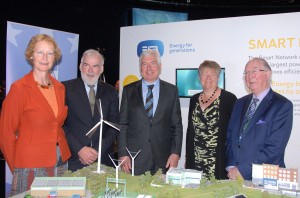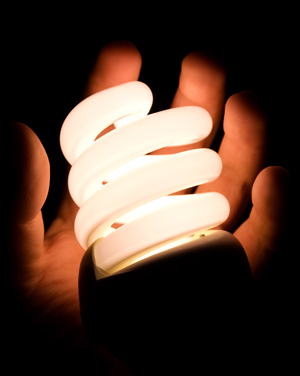WordPress database error: [You have an error in your SQL syntax; check the manual that corresponds to your MySQL server version for the right syntax to use near 'FROM wp_posts
WHERE 1=1 AND ((wp_posts.post_type = 'post' AND (wp_posts.' at line 2]SELECT SQL_CALC_FOUND_ROWS all
FROM wp_posts
WHERE 1=1 AND ((wp_posts.post_type = 'post' AND (wp_posts.post_status = 'publish')))
ORDER BY wp_posts.post_date DESC
LIMIT 0, 10
 On 18 September, the IIEA and the ESB hosted a major international summit entitled “Powershift: Why Everything You Thought you Knew About Energy is Wrong”, which examined the future of the energy industry and the changes that will shape it. Click here to see the photo gallery of this event.
On 18 September, the IIEA and the ESB hosted a major international summit entitled “Powershift: Why Everything You Thought you Knew About Energy is Wrong”, which examined the future of the energy industry and the changes that will shape it. Click here to see the photo gallery of this event.
The summit brought together leaders, industry innovators and policy makers from around the planet, from Maroš Šefčovič, Vice President for Energy Union, European Commission, to Matthew Warren, Chief Executive of the Energy Supply Association of Australia (ESSA).
The conference was introduced by Brendan Halligan, Chairman, IIEA, and Pat O’Doherty, CEO of ESB. Brendan Halligan also chaired one of the conference’s panel discussions, “Visions for the Future of Energy – Disrupt, Innovate, Connect!”
Taking place at the Conference Centre in Dublin’s historic Mansion House, subjects focused on transformative changes currently taking place in the energy sector due to the convergence of energy and digital technologies.
Electric-powered transport and storage, the connected home, how to attract investors to this new energy sector and how to deal with everyday customers who will need to adapt to the new systems were all discussed. Click here to see a gallery of participants at the conference and for full coverage, visit: www.IIEA.com
 If the recent Government Green Paper on energy is to be taken in the traditional sense then its main purpose is to set a sense of direction for the subsequent White Paper, which will define future energy policy for the medium term. With that in mind, I would like to make the following four points:
If the recent Government Green Paper on energy is to be taken in the traditional sense then its main purpose is to set a sense of direction for the subsequent White Paper, which will define future energy policy for the medium term. With that in mind, I would like to make the following four points:
1. It is critical that future energy policy be set in its proper context. Given the increasing scientific evidence about climate change, energy policy should be firmly situated within a much broader framework than is traditionally the case. In short, precedence should be given to decarbonising the economy in preference to economic competitiveness and even security of supply. I think that the strategic direction for energy policy is the most critical question to be resolved and I believe that we should come down firmly on climate change. The so-called trilemma of emission reductions, cost competitiveness and security security should be decisively resolved once and for all in favour of the complete decarbonisation of the economy.
2. The forthcoming White Paper should reflect the sense of urgency that is demanded by the evidence of climate change. Many scientists now believe that we cannot afford to wait until 2050 before we stabilise and reverse carbon emissions and there are some who believe that the timescale could be as short as twenty to thirty years from now. That is the perspective the Irish Government should take and, as a consequence, mould its policy choices accordingly. Logically,that would mean no room for complacency or adherence to a gradualist incremental approach to completing the transformation from black to green energy and all of the other social changes that would have to take place in terms of life style. As a practical example, it would mean moving from the current cottage-industry type of approach to retrofitting towards an industrialised process that would have to be completed within twenty years. Alternatively, this approach could be described as moving from batch production to continuous processing so that a million homes could be fully retrofitted within two decades. As things stand, there’s not a hope of that happening.
3. The White Paper should be based on explicit quantitative targets to be achieved within clearly laid down timescales. If our understanding of climate change science were to change in the future and so demand an even faster pace of transformation then the timeframe could be shortened appropriately. In addition to targets and timelines, the White Paper should spell out the costs and benefits of the energy transformation, with an indication of the costs of mitigation should a “business as usual” scenario be maintained. The most obvious cost of doing nothing, or too little, is that arising from flooding and inundation – a prospect which is beginning to capture the attention of policy makers throughout the world. The real threat to the human race consists of rising sea levels which would have a disastrous effect on coastal cities, especially Dublin and Cork.
4. Irish energy policy needs to be seen in a European context. Indeed, it could be argued that European energy policy needs to be seen in a global context. We must strive for a mentality that breaks out of the confines of national boundaries and positions Ireland as part of a European and global energy market. Obviously, there would be a lot of regulatory consequences which would need to be identified and implemented, since without such changes the transformation to a low carbon future will never be achieved. That thought should enervate the White Paper for without a fit-for purpose regulatory regime policy inertia will prevail over initiative. And the planet will continue to boil up.